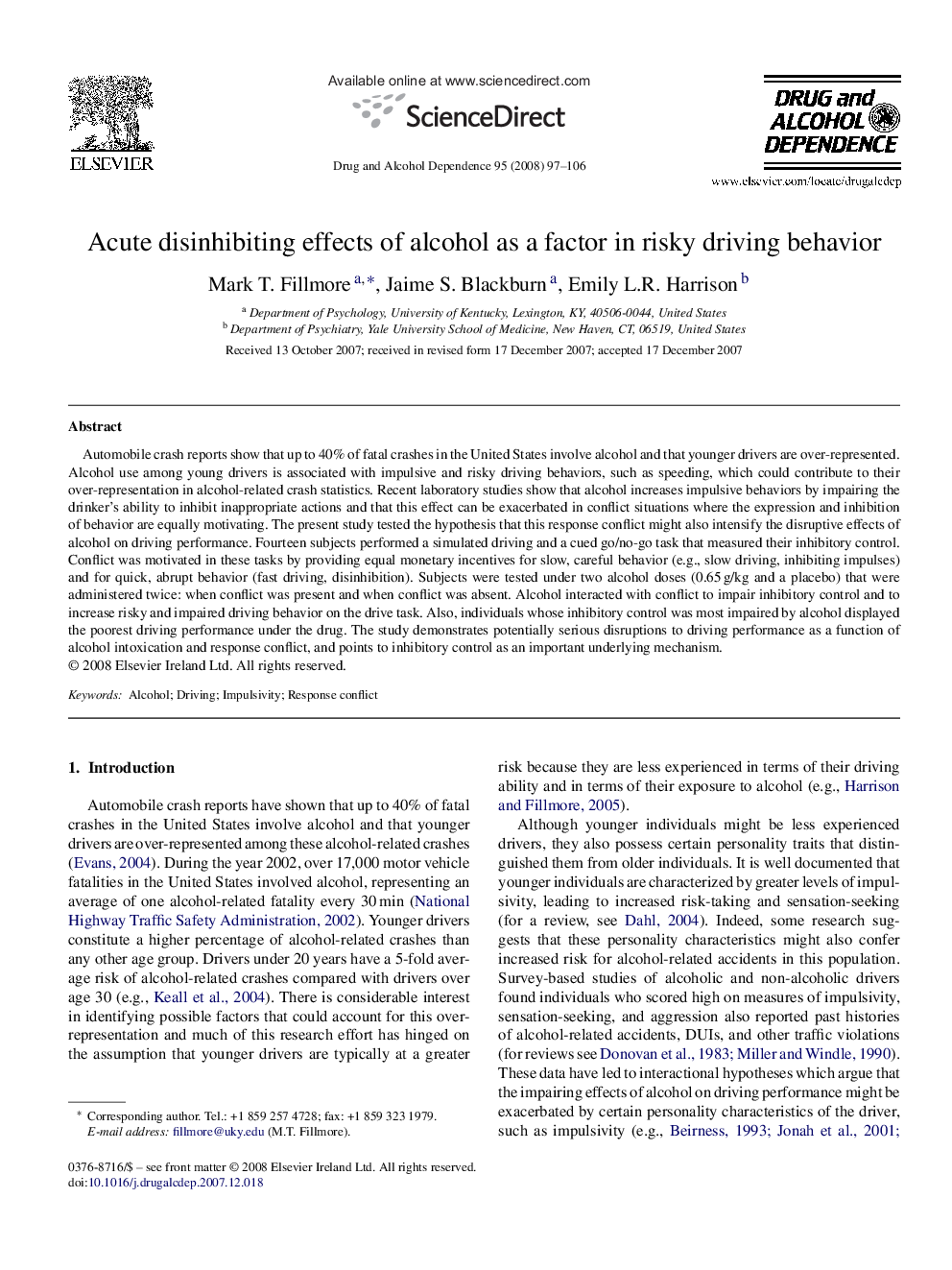| Article ID | Journal | Published Year | Pages | File Type |
|---|---|---|---|---|
| 1070623 | Drug and Alcohol Dependence | 2008 | 10 Pages |
Automobile crash reports show that up to 40% of fatal crashes in the United States involve alcohol and that younger drivers are over-represented. Alcohol use among young drivers is associated with impulsive and risky driving behaviors, such as speeding, which could contribute to their over-representation in alcohol-related crash statistics. Recent laboratory studies show that alcohol increases impulsive behaviors by impairing the drinker's ability to inhibit inappropriate actions and that this effect can be exacerbated in conflict situations where the expression and inhibition of behavior are equally motivating. The present study tested the hypothesis that this response conflict might also intensify the disruptive effects of alcohol on driving performance. Fourteen subjects performed a simulated driving and a cued go/no-go task that measured their inhibitory control. Conflict was motivated in these tasks by providing equal monetary incentives for slow, careful behavior (e.g., slow driving, inhibiting impulses) and for quick, abrupt behavior (fast driving, disinhibition). Subjects were tested under two alcohol doses (0.65 g/kg and a placebo) that were administered twice: when conflict was present and when conflict was absent. Alcohol interacted with conflict to impair inhibitory control and to increase risky and impaired driving behavior on the drive task. Also, individuals whose inhibitory control was most impaired by alcohol displayed the poorest driving performance under the drug. The study demonstrates potentially serious disruptions to driving performance as a function of alcohol intoxication and response conflict, and points to inhibitory control as an important underlying mechanism.
